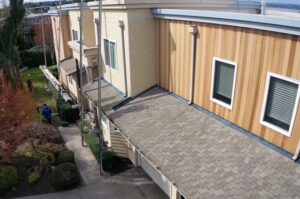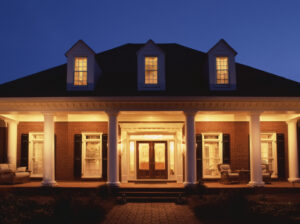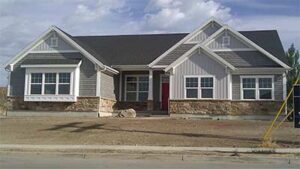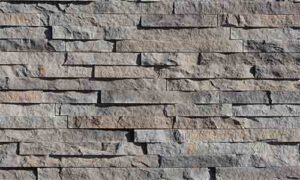When it comes to protecting your home, siding is one of the most important investments you’ll make. It keeps moisture out, boosts energy efficiency, and plays a big role in your home’s curb appeal. But how long does siding actually last? The answer depends on the type of material, your climate, and the quality of installation.
If you live in the Seattle area, where rain, moisture, and variable weather are constant factors, choosing the right siding — and knowing when it’s time to replace — is essential.
Average Lifespan of Different Siding Materials
Not all siding materials age the same. Here’s a breakdown of the most common options and how long you can expect them to last when properly installed and maintained:
- Fiber Cement Siding (30–50 years)
Highly durable, fire-resistant, and moisture-resistant. A top choice for the Pacific Northwest, fiber cement siding like James Hardie® is built to last for decades with minimal upkeep. - Engineered Wood Siding (20–30 years)
Pre-fabricated and treated to resist pests and decay, engineered wood offers the beauty of real wood with better durability. Lifespan depends on upkeep and proper installation. - Vinyl Siding (20–40 years)
One of the most affordable options, vinyl siding holds up well against moisture but can crack or fade over time. Quality installation and routine cleaning can extend its life. - Cedar & Natural Wood Siding (15–25 years)
Beautiful and timeless, but requires consistent maintenance, staining, or sealing to withstand Seattle’s damp weather. Without care, wood siding deteriorates faster. - Stone Veneer Siding (50+ years)
One of the longest-lasting siding choices, stone veneer provides durability and visual appeal. While the siding itself lasts decades, mortar and installation quality play a big role in longevity.
Factors That Affect Siding Lifespan
Even the best siding materials won’t last as long as they should if these factors aren’t managed:
- Climate Exposure – Seattle’s rain and moisture make it critical to choose siding designed for wet conditions.
- Installation Quality – Professional installation ensures siding is properly sealed and ventilated.
- Maintenance – Regular inspections, power washing, and repainting or resealing when needed extend lifespan.
- Damage & Repairs – Promptly fixing cracks, warping, or leaks prevents small problems from spreading.
Signs It’s Time to Replace Your Siding
Wondering if your siding is nearing the end of its life? Look for these warning signs:
- Cracks, chips, or warping
- Mold, mildew, or rot
- Rising energy bills from poor insulation
- Frequent repainting required
- Visible water damage inside your home
Why Replace Your Siding Before It Fails?
Delaying siding replacement can lead to water intrusion, structural damage, and higher energy costs. On the other hand, new siding offers:
- Improved energy efficiency
- Boosted curb appeal and home value
- Better protection from Seattle’s wet climate
- Peace of mind with manufacturer warranties (Emerald State offers up to 50 years on select products)
Ready to Upgrade Your Siding?
At Emerald State, we specialize in siding installation across Bellevue, Issaquah, Kirkland, Newcastle, Redmond, Sammamish, and Woodinville. Our licensed team installs fiber cement, engineered wood, vinyl, cedar, and stone veneer siding built to last in the Pacific Northwest climate.
Get a free siding estimate today and find out how long your siding will last.




